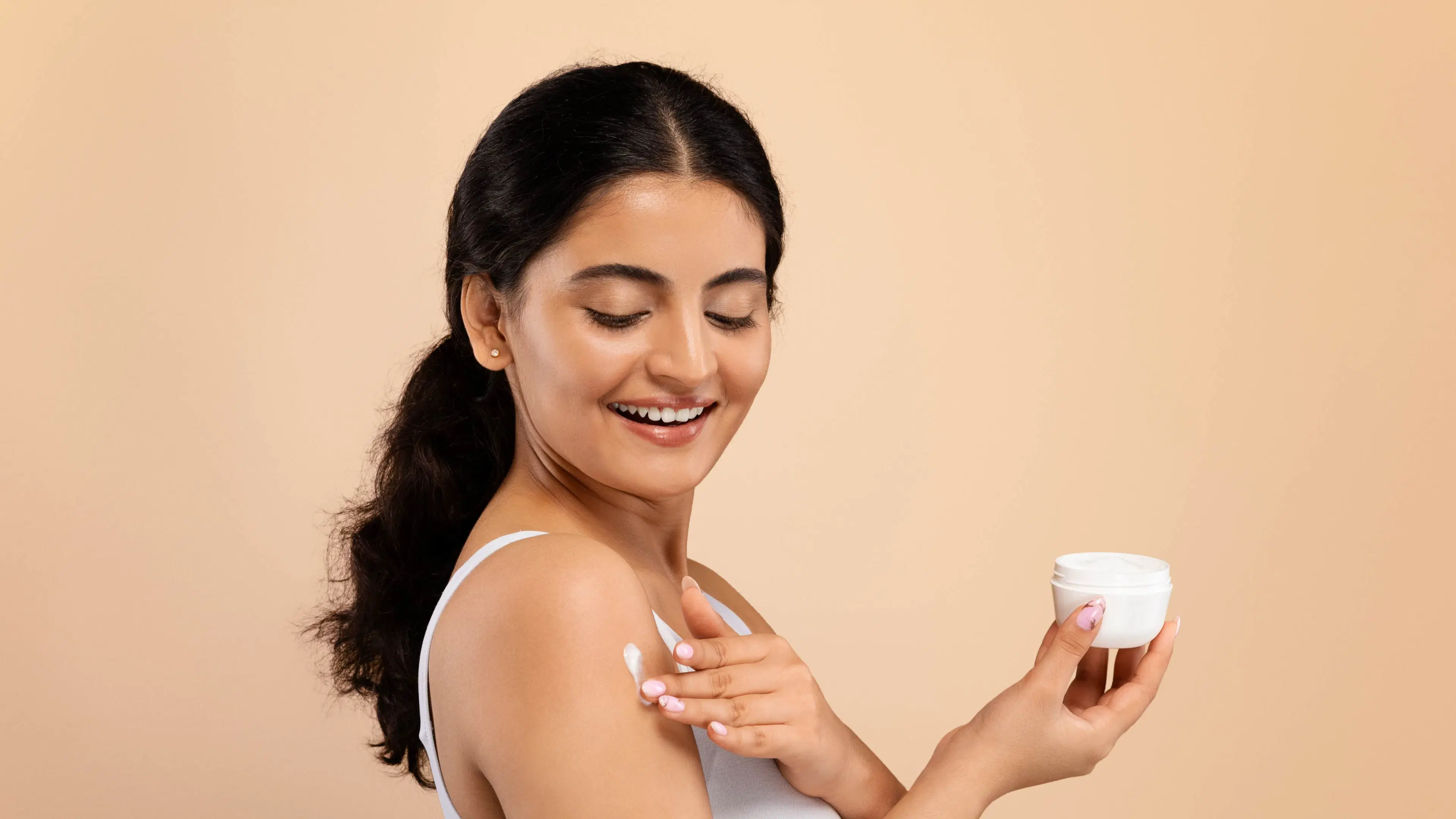
Beauty & Skincare
•04 min read
-9872eb55-9af0-4022-8644-bd8f05e8333e.png&w=3840&q=75)
Retinol is one of the most popular and effective skincare ingredients. It is cherished for its ability to boost collagen production, enhance skin cell turnover, and smooth skin texture. In this guide, you will learn about what percentage of retinol is effective, the best retinol concentration for skin, and how to choose retinol concentration based on your needs. Whether you are seeking retinol potency for anti-aging, retinol effectiveness for wrinkles, or retinol percentage for acne treatment, we have expert answers to help you navigate your skincare journey.
Retinol, a derivative of vitamin A, is a powerhouse ingredient in modern skincare. As it penetrates the skin, it converts into retinoic acid, stimulating cellular processes that improve skin texture, reduce fine lines, and combat acne. Its impactful role in boosting collagen makes it a popular choice for those keen on anti-aging benefits and vibrant skin health. With its dynamic effects, understanding the right retinol strength for sensitive skin and other skin types is crucial to a balanced routine.
The percentage of retinol in a product determines its performance and potential for irritation. High concentrations tend to deliver faster or more noticeable results but may increase the risk of irritation. For beginners or those with sensitive skin, effective retinol percentage for beginners should be lower to ensure a gentle introduction without overwhelming the skin. Choosing the ideal retinol dose for skincare is about striking a balance between achieving visible results and maintaining skin comfort.
Retinol formulations for skin health come in a variety of strengths designed to address different skin concerns and user experiences. Consider these common ranges:
Low Strength (0.1%–0.3%): Ideal for beginners and for those with sensitive skin, these formulations deliver gradual improvements and reduce the risk of irritation.
Medium Strength (0.5%–1%): Perfect for users who have acclimatized to retinol use, offering noticeable benefits for anti-aging and acne treatment.
High Strength (1.5%–2%): Designed for experienced users who require potent action against deep wrinkles or persistent acne. These are best used under guidance after establishing skin tolerance.
Matching retinol strength to your skincare goals is key. For example, the best retinol concentration for skin might vary if you are targeting fine lines, treating stubborn acne, or simply looking to enhance overall skin texture.
-5ba1f1f6-995b-4617-a1ff-43890351cff7.png&w=3840&q=75)
Choosing the right retinol strength balances effectiveness with your skin’s sensitivity. Beginners should start with a concentration between 0.1%–0.3% to build tolerance. For anti-aging benefits, many find that concentrations between 0.5% and 1% provide a noticeable solution for wrinkles, while for acne treatment, formulations in the 1%–2% range are often recommended. Sensitive skin usually responds best to lower percentages, sometimes combined with soothing ingredients such as niacinamide or hyaluronic acid, ensuring a gentle skincare experience without compromising on results.
Introducing retinol into your skincare routine should be done gradually. For those new to retinol, start with a pea-sized amount of a low-strength retinol product (0.1%–0.3%) applied every other night. This helps the skin adjust while reducing the risk of dryness or irritation. Pairing retinol with a gentle moisturizer supports hydration and complements the transformative benefits of retinol. Remember, retinol increases sun sensitivity, making daily sunscreen usage imperative.
Once your skin gets accustomed to retinol, you may consider increasing the concentration to benefit from more advanced effects, such as retinol potency for anti-aging. It is recommended to wait about 6–12 weeks before moving to medium-strength formulations (0.5%–1%). Keep an eye on your skin for any signs of irritation, like redness or peeling, and adjust usage accordingly. This cautious progression helps ensure a safe, effective journey to improved skin clarity and texture.
Retinol is available in several forms, including creams, serums, and oils. Each type has its own advantages. Creams are typically enriched with hydrating agents and work well for sensitive skin. Serums and oils, being more concentrated, are better suited for experienced users who are familiar with retinol potency for anti-aging. Low vs high retinol concentration decisions are best made with an understanding of your skin's needs and tolerance levels.
There is a key difference between prescription retinoids and over-the-counter formulations. Prescription options often have higher concentrations and require a dermatologist's guidance. Over-the-counter products, on the other hand, offer a range of retinol strengths that are designed to be both effective and safe for a wide audience. They provide a practical choice for many who wish to boost collagen naturally or address specific concerns like wrinkles or acne without overloading the skin.
Insight Corner: Did You Know? The effectiveness of retinol isn’t just about percentage—it’s also influenced by the formulation. Encapsulated retinol, for example, delivers results gradually, reducing irritation while maintaining its potent benefits.

1% retinol can be too strong for beginners or anyone with sensitive skin. It is better suited for experienced users or those addressing more advanced skin concerns.
Yes, 2.5% retinol is considered very potent and is usually not recommended for over-the-counter use. Lower concentrations, such as 0.5%–1%, are effective for diminishing wrinkles with less risk of irritation.
The most effective percentage depends on your skin type and goals. Beginners may find 0.1%–0.3% effective for gradual improvement, while many favor 0.5%–1% for anti-aging and acne treatment.
Both are effective; however, 0.5% is typically advised for beginners or those with sensitive skin, while 1% is ideal for advanced users seeking more significant results.
For acne treatment, products with 1%–2% retinol are often recommended. Beginners should start at lower percentages to minimize the risk of irritation.
Understanding retinol percentages is key to unlocking its full potential in your skincare routine. Selecting the right concentration for your skin type and concerns ensures optimal benefits while maintaining comfort and skin health. Whether you are driven by anti-aging goals or need targeted treatment for acne, retinol offers versatile benefits that can enhance your skincare experience. Explore the realm of retinol formulations to uncover elegant, effective options that elevate your routine with style and care.